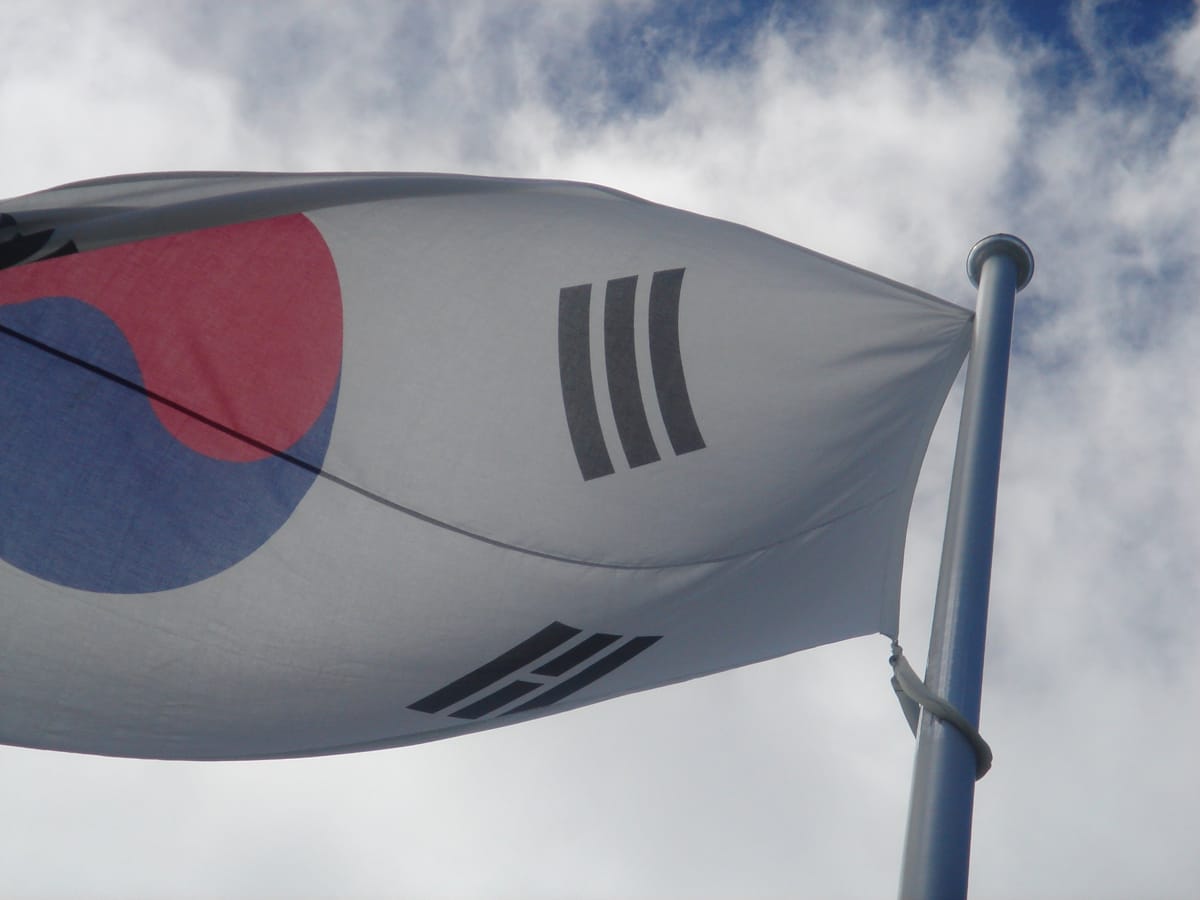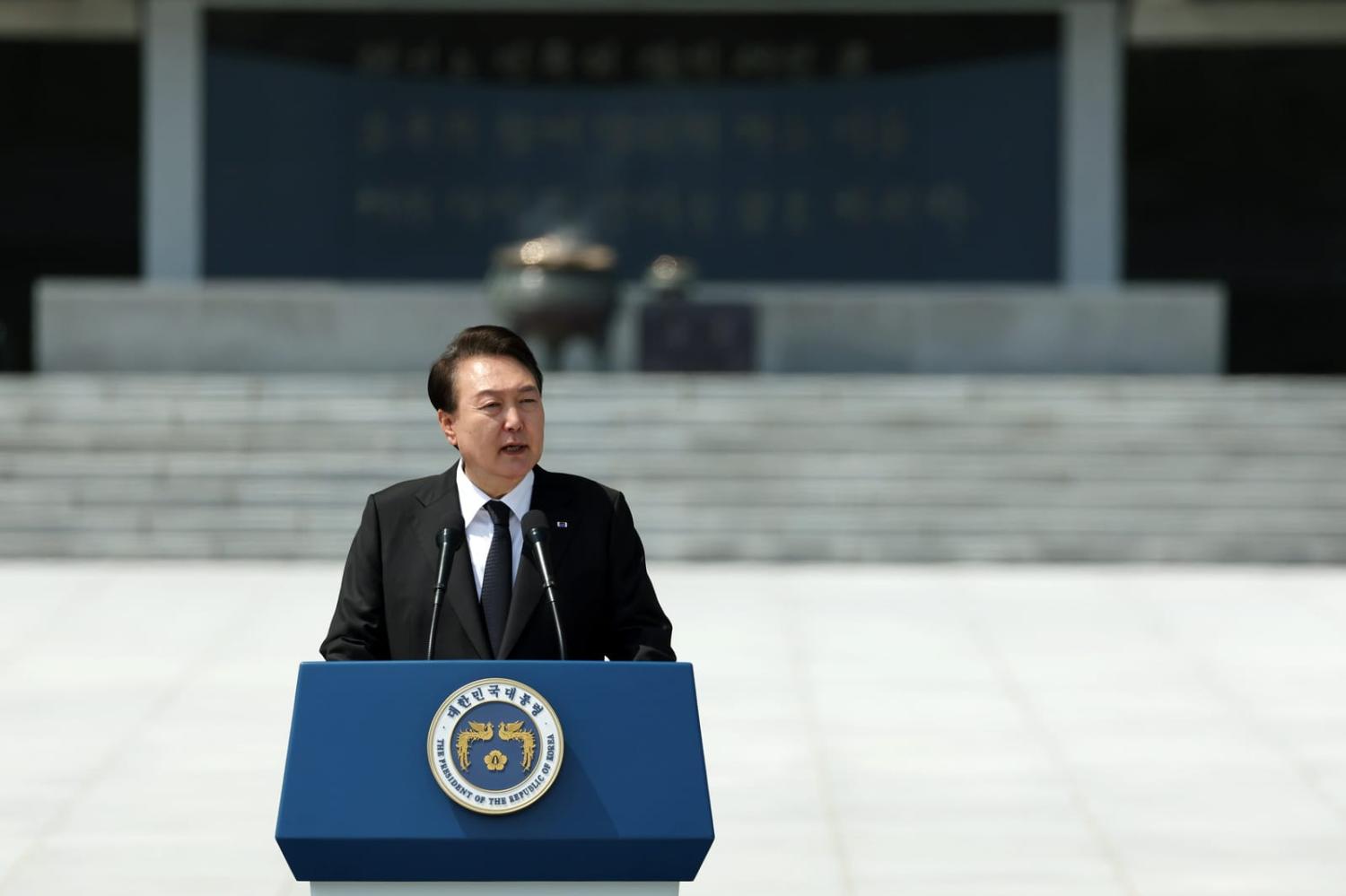A “Global Pivotal State Contributing to Freedom, Peace, and Prosperity”. This is how the South Korean National Security Strategy published last week describes the country – although, if the Yoon Suk-yeol administration aspires for South Korea to be perceived this way, Seoul will need to reassess its diplomatic approach to live up to the rhetoric.
According to the NSS document, the three main objectives include enhancing the safety of South Korean citizens, establishing peace on the peninsula, and laying the foundation for East Asia’s prosperity.
The strategy places particular emphasis on enhancing cooperation with the United States and Japan, the two partners Yoon has placed the most value on since coming to power last year. For example, one of the core defence tenets cited in the document is to “establish a comprehensive defence posture grounded in the solid ROK–US alliance”, using the official Republic of Korea nomenclature. Regarding Japan, the document explains that “as trilateral security cooperation among Korea, Japan, and the United States grows increasingly important to counter North Korean nuclear and missile threats, there is a compelling need to transform the deteriorated Korea–Japan relationship into a forward-looking, cooperative partnership.”
The strategy does make mention, albeit briefly, of increasing cooperation with partners in the Middle East, the Association of Southeast Asian Nations, the European Union and Africa. However, the emphasis is strongly placed on Tokyo and Washington, and on pursuing “values-based diplomacy” focused especially on democracy, freedom, human rights and the rule of law.
Countries such as Russia and China, however, fall into a different category. Seoul sees Moscow and Beijing as forming a bloc with Pyongyang. The document states:
In Northeast Asia, the growing alignment among China, Russia, and North Korea has led to weakened cooperative momentum for addressing regional security issues, such as the North Korean nuclear problem.
Then again, increased trilateral cooperation between Seoul, Washington and Tokyo could be said to have formed another bloc that has led to further regional division and less multilateral diplomacy aimed at engagement with Pyongyang.
Moreover, the close relationship that China and Russia have with North Korea should be seen as an opportunity rather than a barrier to inter-Korean diplomacy. If the Yoon government’s goal is truly to “foster sustainable peace on the Korean Peninsula”, as stated in the NSS, multilateral diplomacy involving all relevant actors will be necessary. This would certainly include China and Russia.
And on China, South Korea’s biggest trading partner, diplomatic cooperation is paramount, given China’s close relationship with North Korea and its immense regional and global influence. The Yoon administration seems to be leaning increasingly in the direction of full alignment with Washington.
Although the NSS states that South Korea aims to “cultivate a healthier and more mature relationship built on mutual respect and reciprocity” with China, things are in fact moving in the opposite direction.
Relations with China under Yoon have been tense, plumbing a new low in April when the South Korean president referred to Taiwan as a “global issue” comparable to North Korea. The relationship with Beijing suffered again last week when China’s Ambassador to South Korea Xing Haiming warned Seoul in a conversation with opposition leader Lee Jae-myung against making the “wrong judgment” about China because of the “interference of external factors” such as US pressure. “I can assure you, those who bet on China’s defeat will definitely regret it,” Xing reportedly said.

One of the most difficult tasks for any South Korean president is to carefully balance its relations with the two superpowers, the United States and China. Given South Korea’s geopolitical position and its close ties with both states, isolating any one of them would be detrimental to its national interests. In addition, the global threat coming from North Korea and the high stakes involved also ensures this issue is not something the South can resolve on its own.
Right now, North Korea is uninterested in engaging in dialogue with either the United States or South Korea, and will continue down this path of continuously expanding and advancing its weapons arsenal unless a different strategy is adopted. So, for diplomacy with the North to become possible, the South must engage in multilateral diplomatic cooperation with all relevant actors to encourage both inter-Korean dialogue as well as talks between Washington and Pyongyang, similar to the approach pursued by former President Moon Jae-in.
Having recently been elected as a non-permanent member of the United Nations Security Council for the 2024–25 term, South Korea has the opportunity to establish itself as the “Global Pivotal State Contributing to Freedom, Peace, and Prosperity” that the Yoon government envisions. To do so, increased multilateral cooperation will be necessary to promote diplomacy over military provocations, inclusivity instead of division, and peace instead of conflict.

